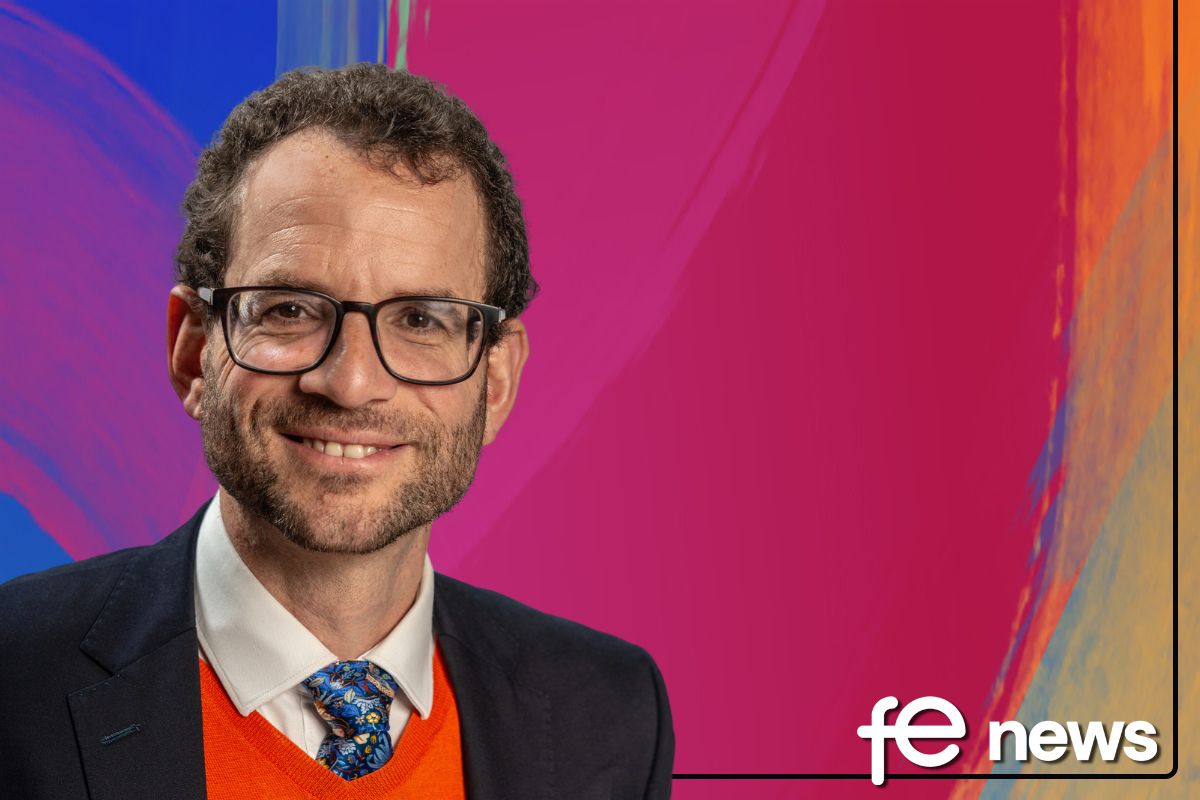A new vocational paradigm?

There have been many calls for vocational education and training to be established within the English educational system as a robust and esteemed route, but they have all failed.
Today, such calls are still being made, perhaps more vociferously than ever in a variety of ways; through the Commission for Adult and Vocational Teaching and Learning and in Bill Lucas et al. stimulating How to teach vocational education: A theory of vocational pedagogy; and in Labour’s Skills Task Force Interim Report, Talent Matters. There is the promise of some new thinking and, finally, not to omit the significant work of Compass which is also calling for a new ‘model’ of education.
So there is clearly some real reflection being done around vocational education, qualifications, employment and training.
From the teaching side, ATL members have given voice to their wish for teacher qualifications to be specifically based on vocational teaching and training (given in ATL’s presentation to CAVTL), rather than based on what they perceive, quite rightly I would say, to be an academic paradigm. When Geoff Stanton spoke to ATL’s lead member body, FESAG (Further education sector advisory group), and talked about the dominance of the ‘academic paradigm’ he chimed with members’ thinking.
If we take up the phrase of a ‘clear line of sight to work,’ that CAVTL has given as one of its central messages (and taken up in Nigel Whitehead’s review of adult vocational qualifications at UKCES), we need to be clear if that means a new vocational paradigm is aimed for – or merely another call to arms without a clear target in sight (to shift the metaphor slightly).
I think CAVTL, particularly in the words of the chairman of the commission, Frank McLoughlin, has got a very clear aim in mind, that is, ‘work’, but we have to consider if it runs along lines that we have heard before. Not that Frank, or the commission, is retreading old ground here! I think there is a seriousness and earnestness to CAVTL’s work that does the sector great credit. It is from such work we can challenge assumptions and outmoded ideas and practice so that, in turn, we can reflect on how we can raise the status and profile of vocational education and training in England.
But it is always well to remember that previous debates have been littered with the best of intentions and aims. And, unfortunately, that most calls for a focus on vocational education and training have been dominated by a utilitarian approach, whether it is put as engaging the disaffected, helping with youth unemployment or getting into work, or, educating the ‘exclusive’ 50%, who can’t ‘do’ the academic paradigm. Finally, there is the straightforward policy driver of raising skills in the general workforce which has never been shown to work as a strategy, nor can it if we use the proxy measure of current qualifications (Ewart Keep and Ken Mayhew have reinforced this point in their latest salvo, The Resources Dwindle, available on the SKOPE website).
With that assumption (that VET is primarily about social need and economic need), a lot of debate, quite properly, has been taken up with issues of class and poverty and how that affects, in turn, the resources students have to learn (there is still a ‘digital divide’), the transport cost of access to colleges, financial support for students, the debate about free meals for under 18s, and then there is the question of adults having the confidence to invest in their own future via loans for Level 3 courses and higher and advanced Apprenticeships.
The implications are that the FE sector is now joined with BIS, DFE and DWP in regard to youth services! You can see my drift here. Once we assume that it isn’t the educational paradigm that is the problem, we end up working through every other possibly implied problem!
Even debates taken up with engaging employers and the types of skill that might be needed for growth, or the attributes that employers may want, become confused and unfocused and we end up with yet another skill set of sorts: employability, edging further and further away from where we started.
I’m not saying such a skill set isn’t useful, particularly today, but what I am arguing is that we start with ‘qualifications’ and we end up developing skills that the qualifications don’t cover that employers want, that we want, that learners want. So, what’s wrong with our educational paradigm that we keep adding to it?
While the areas of concern that I have mentioned are deeply significant and crucial to any democratic society, and notions of social justice, they must be distinguished from the matter itself: is there a vocational paradigm to be developed that would actually do what we want: engage all learners, provide appropriate skills for employers and the economy, be a generic route to employment or university?
Sounds good?
But a change of paradigm would mean moving to a wholly different set of criteria from which vocational learning and training could be derived. From such criteria principles could be developed that would change our view of qualifications, curricula, pedagogy, and assessment. But are there such criteria? I believe there are. But they lie in areas of debate that are (wait for it)… vocational. Ideas and theories that have built their concepts from practice, not from the ‘ivory tower of ideas’ (ok, let’s name names, Plato, Descartes, Hirsch, Gove!).
These thinkers (I’m using the term very broadly), who advocate the academic paradigm, believe that knowledge is given in propositions; that propositions are best expressed in words; words derive from the medium of thought; and knowledge is deposited in the individual’s mind and, ultimately, assessed by writing those propositions in essays.
Hence the Govean idea (I use this as one would a ‘Swiftean idea’, that is fabulous and fantastical with a tangential relationship to reality) that knowledge can be built from little blocks of facts and then magically put together to form ‘cultural’ and cohesive ideas about the self, others, things and the world. Always assuming, of course, that the world is broken up into such monoliths as ‘history’ (a nineteenth century invention if we mean looking to explain past events and not just recounting them), ‘mathematics’ (are we talking ‘modern’ here or just ‘sums’?), ‘poetry’ (I’m not even going to try).
And then, they assume, that we as individuals simply need to put the blocks together in a ‘rigorous’ way that matches the monoliths outside our heads. There are a number of people, not just those who come from Govea, who would argue that, modern developments aside, the academic paradigm still should define what knowledge is and how it is transmitted for all time…
But, there is a different set of criteria that we should consider and it is given in work-based learning and informal learning environments. ‘Knowledge’ is here given in a number of terms: ‘skill’, ‘practice’, ‘know-how’ and, as transmitted in vocational education and training, can also be put as ‘embodied cognition’ which can be inarticulate (at times) but, also, tacit. It is built up in social practice (teams, organisations, groups, projects); and it is often assessed by those who are expert in the field (sometimes formally, sometimes by the receiver of the practice – my dentist is particularly skilful thank God). It is evident in skilful performance and/or constructions of things made. Such learning, in Hubert Dreyfus’ model of skill development, can also be described, at its height, as ‘mastery’ or ‘expertise;’ this is when the expert no longer needs to be aware of ‘explicit’ rules and thoughts during their performance (Andy Murray couldn’t remember his last game that won Wimbledon, arguably his highest level of achievement). Such thinking can also be found in strategic thinking, judgements, decisions, sporting performance and so forth, precisely because it’s a ‘vision’ thing and one that doesn’t need to be aware of the details and minor contingencies.
Interestingly, the terms of use of such ‘vocational knowledge’ are well taken up by policy makers and government itself. But what they don’t do is take the next step and reflect on why they even think ‘something’ is being transmitted, how that ‘something’ is seen as ‘high quality’ and how it can be put into a qualification and taught.
The criteria that are apparent in work-based learning studies offer a richer set of examples of human behaviour and development than the narrow academic paradigm. In fact, I would tend that the academic paradigm is a part of this broader palette and not a ‘competitor’ at all. Where we tend to fall down is thinking in ‘binary’ terms theory/practice; knowledge/performance and then thinking that they are ‘really’ (at some point) distinct in human beings. As if we had a ‘mind’ and a ‘body’ and they were separate in what they told us about the world. The view I’m following is that the way we think about the world is always already within the world and not apart from it. We are dealing with ontology, not epistemology.
Ontology is the investigation into what is, into how things appear, and how they really matter to us, whereas epistemology deals with ‘how we know’ and already assumes a ‘discrete’ inquiring mind apart from the world of objects. The work of Martin Heidegger is having an impact on work-based learning theory precisely because his philosophical work points us toward our being-in-the-world and in providing us with an ontological conception of knowledge formation.
An ontological view of education would be one that encompasses social theories of learning, constructivist pedagogies, and develops from the fundamental insight that the world and how we are part of it matters to us. It would signal an interest in group activity, in ‘understanding’ rather than knowledge (as that term has developed from epistemological considerations) and it would embrace the tacit dimension of human activity and skill development. In short, it would be a non-propositionally-based education system beginning with play and ending with ‘know-how’, even to the point of ‘how you live your life’. It’s ‘in between’ these poles of activity that we articulate the problems, distinctions, differences we confront and use words.
As I said earlier there is a place for the ‘academic paradigm’ within this ontological view of education. And it would be in the notion, derived from Heidegger, that the logical space for reflection and theory comes after our engagement with the world, in fact, when it has broken down. This is why Heidegger’s thought can stretch to those who are interested in overcoming the Platonic assumption that knowledge is prior to our disclosure of the world; the Cartesian notion that reason can articulate the self and world; and the Govean notion that knowledge is primarily about facts.
There are two examples given by Heidegger that show how the world is to us.
The first is our use of equipment and often termed ‘know how’. We don’t actually conceptualise what we are doing when we are performing a task. We just do it and, only later – or if something goes wrong – do we reflect on the task or the detail itself.
The second is that when we are stopped in our tasks we do some very odd things. We get irritated, angry, frustrated, and if it continues (or is about something significant) we start to think that life has lost its meaning.
What Heidegger’s philosophy shows is that we are deeply embedded ‘in-the-world’ and that our engagement is not based on ‘knowledge’. Yet, we do pass on this engagement all of the time in advice, in showing how things are done, and, yes, in telling others about how to do them (but then, of course, you are not doing them).
For those who hold too firmly to the academic paradigm they would say that the proposed vocational criteria do not fit its paradigm (duh!). But then we get the ensuing problems when we do use the academic paradigm to learn about vocational skills or even teach vocational teachers. We end up trying to assess the wrong sorts of things and using the wrong methods – that’s why a vocational assessor is trained to ‘assess’, and isn’t necessarily a field expert (who would immediately know what to look for and not need descriptors from the student per se). It’s why teacher training doesn’t have necessary modules on workshops, work-based, and work-related learning. It’s why we don’t have the words for an occupational expert and teacher (‘dual professional’ is a start, but it could be seen more as a composite than a new identity). And, finally, it’s why Ofsted have a challenge in assessing vocational areas, as Karen Adriaanse, HMI national adviser for careers guidance and employability at Ofsted and another expert who kindly gave her valuable time to ATL’s lead group, noted. The new CAVTL and Ofsted Project on exactly this should be interesting.
So, yes, there should be a clear line of sight to work, but it should be one that is based on a new line of sight to the world as well. It should be one that seriously contemplates whether a new vocational paradigm is needed that would enable new curricula, new pedagogies, new forms of assessment and, ultimately, a truly innovative vocational educational and training system (all three elements being necessary, please note).
Philosopher John Dewey, quoted in Stephen Billett’s Vocational Education: Purposes, Traditions and Prospects, said: “The kind of vocational education in which I am interested is not one which will adapt workers to existing industrial regime; I’m not sufficiently in love with that regime for that. It seems to me that the business of all who would not be educational timeservers is to resist every move in this direction, and strive for a kind of vocational education which will first alter the existing industrial society, and ultimately transform it”
I’d like to dedicate this piece to the memory of Professor John Konrad who, I believe, had a sense of a ‘new world’ of education and was as concerned with bee keeping as much as dementia care or degrees as forms of knowledge.
Norman Crowther is the national official for post 16 education at Association of Teachers and Lecturers, the education union. The views expressed in this article are his own











Responses